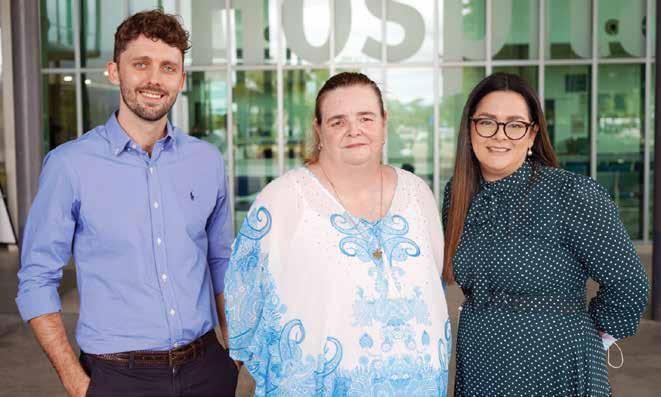
2 minute read
Increase in foster and kinship carers making a difference
More than 6,000 carer families are now stepping up to support some of the state’s most vulnerable children, according to the latest child safety data released earlier this month.
The total number of carer families as of 30 September 2022 was 6,017, up from 5,927 at the same time in 2021 and 5,680 in 2020.
Minister for Children, Leanne Linard MP said early intervention services continued to be well supported with 4,294 families receiving support from a Family Wellbeing Service, 211 more families compared to the same period last year, improving the wellbeing and safety of Aboriginal and Torres Strait Islander families, children, and young people.
“I want parents and carers to know that support is always available to keep their children safe, and their families healthy and thriving,” Ms Linard said.
She said many Queensland families were stepping up to become foster or kinship carers.
“Carer families play such a crucial role in ensuring some of Queensland’s most vulnerable children receive the support they need and deserve,” Minister Linard said.
“Over the last year, 1,547 families stepped up to be carers for the first time – to those families and those who continue to provide care, I say thank you,”
“We now have almost half of the children and young people in out-of-home care placed with kin (46.5 per cent) compared to only around one-third in kinship care 10 years ago.”
Ms Linard said recruiting more foster and kinship carers remains a key priority for the Queensland Government, as family support services continue to provide the necessary support and referrals needed to keep children safely at home.
“Sadly, we know there’s still a great need for our child protection services, with 33,098 notifications recorded in the year ending 30 September 2022,” she said.“The Department is committed to working with families to ensure children can grow up safe and supported, surrounded by both kin and culture,” she said.
For more information visit https://performance. cyjma.qld.gov.au/ life-changing donation.
“I currently have dialysis three times a week for four and half hours each go,” she said.
“After dialysis, it’s like you’ve run a marathon.
“You’re absolutely buggered for the rest of the day.
“Having been to Brisbane for my first transplant, I know firsthand how very emotionally draining the process can be.
“When you go and have your transplant, you’re in hospital for five days and then you go to accommodation for weeks afterward, but if I was here, I could go home.

“While you have a lot of support from our local health service and the team in Brisbane, you can be away for an extended period so there is stress involved in arranging care for pets, your home, and your family.
“I can see why some dialysis patients with young children would decline a transplant if having to travel to Brisbane.
“It would be exciting to know you can have your surgery here close to you home, family, pets and treating team in a hospital where everything is familiar and comfortable.”
THHS Director of Planning Billy Bragg said the transplant unit was set to be life-changing and saving.
“Having the surgical site here in Townsville will increase our capacity to meet the growing demand of our community, while strengthening our position as the tertiary referral hospital for the region,” he said.
“Showing we can do transplants will open the door for other super specialty services normally only available in Brisbane.
“More than that, we have shown how collaboration between clinicians across the system can result in new ideas that benefit patients.
“The business case proposes pre- and posttransplantation care being provided closer to home for all patients, as well as several initiatives to reduce the burden on patients during their transplant journey.
“The whole idea is improving access, outcomes, and experience.
“The creation of a new service will allow more people from northern Queensland to be placed on the wait list, receive their transplant, and no longer need dialysis so they can get back to some normality in their day-to-day lives.”









